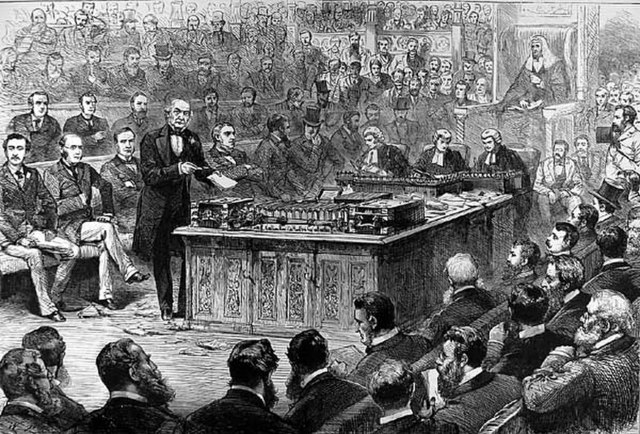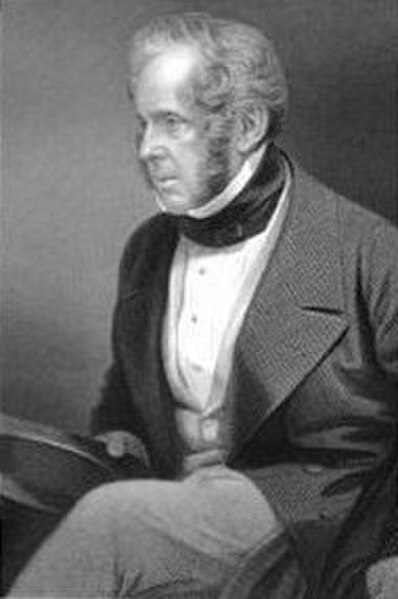The Liberal Unionist Party was a British political party that was formed in 1886 by a faction that broke away from the Liberal Party. Led by Lord Hartington and Joseph Chamberlain, the party established a political alliance with the Conservative Party in opposition to Irish Home Rule. The two parties formed the ten-year-long coalition Unionist Government 1895–1905 but kept separate political funds and their own party organisations until a complete merger between the Liberal Unionist and the Conservative parties was agreed to in May 1912.
The Liberal Unionists' leader, the Duke of Devonshire (1897, NPG).
Gladstone introduces the Home Rule Bill in the House of Commons (1886).
Joseph Chamberlain, head of the "tariff" faction of the party (1896).
The Liberal Party was one of the two major political parties in the United Kingdom, along with the Conservative Party, in the 19th and early 20th centuries. Beginning as an alliance of Whigs, free trade-supporting Peelites, and reformist Radicals in the 1850s, by the end of the 19th century, it had formed four governments under William Gladstone. Despite being divided over the issue of Irish Home Rule, the party returned to government in 1905 and won a landslide victory in the 1906 general election.
Viscount Palmerston
William Gladstone
Liberal politicians David Lloyd George and Winston Churchill enacted the 1909 People's Budget which specifically aimed at the redistribution of wealth.
Liberal poster c. 1905–1910, clockwise from the left: Joseph Chamberlain (satirised as an unmarried mother leaving her baby at a Foundling hospital) abandons his commitment to old age pensions after failing to reach agreement with the Friendly Societies; Chancellor Austen Chamberlain threatens duties on consumer items which had been removed by Gladstone (in the picture on the wall); Chinese indentured labour in South Africa; John Bull contemplates his vote; and Joseph Chamberlain and







